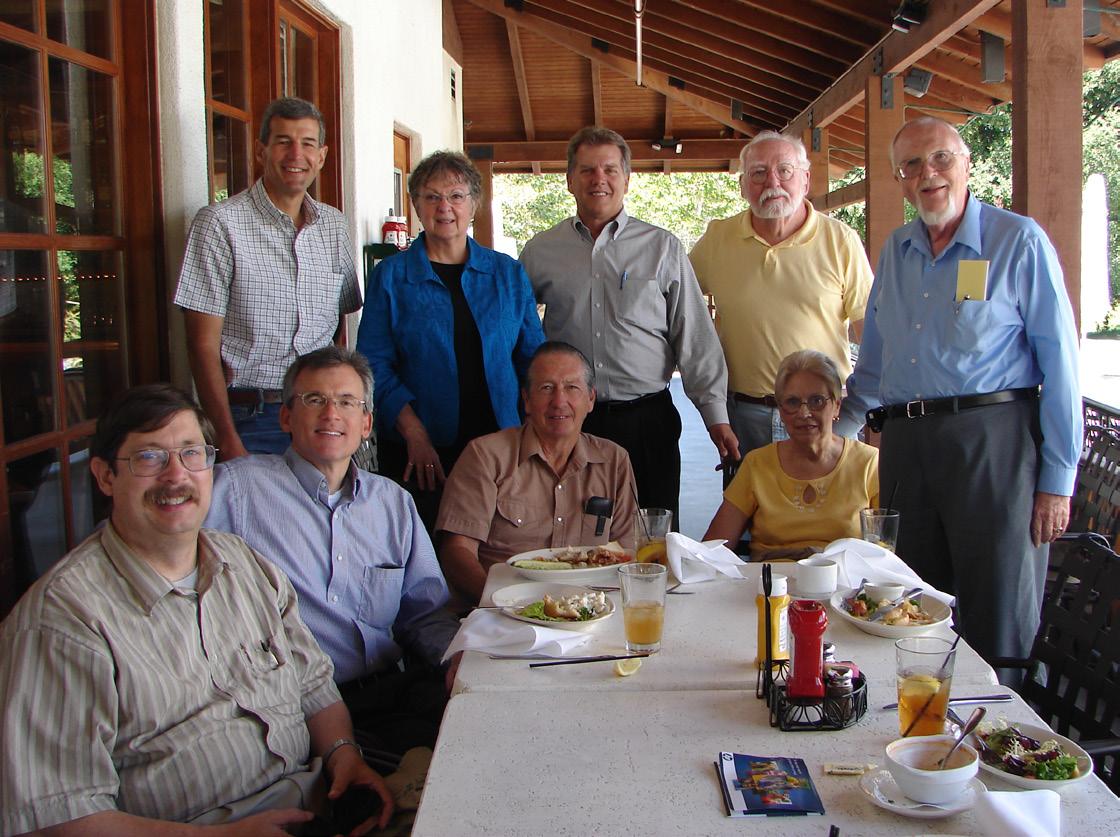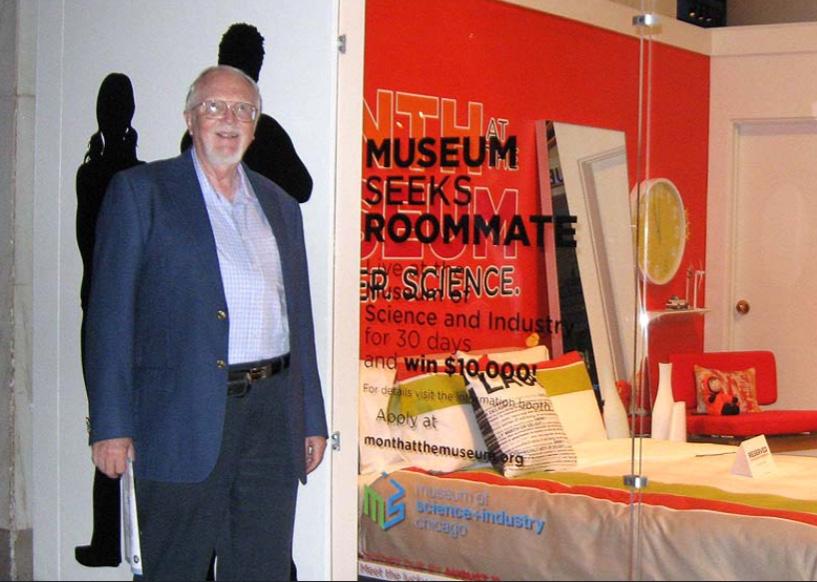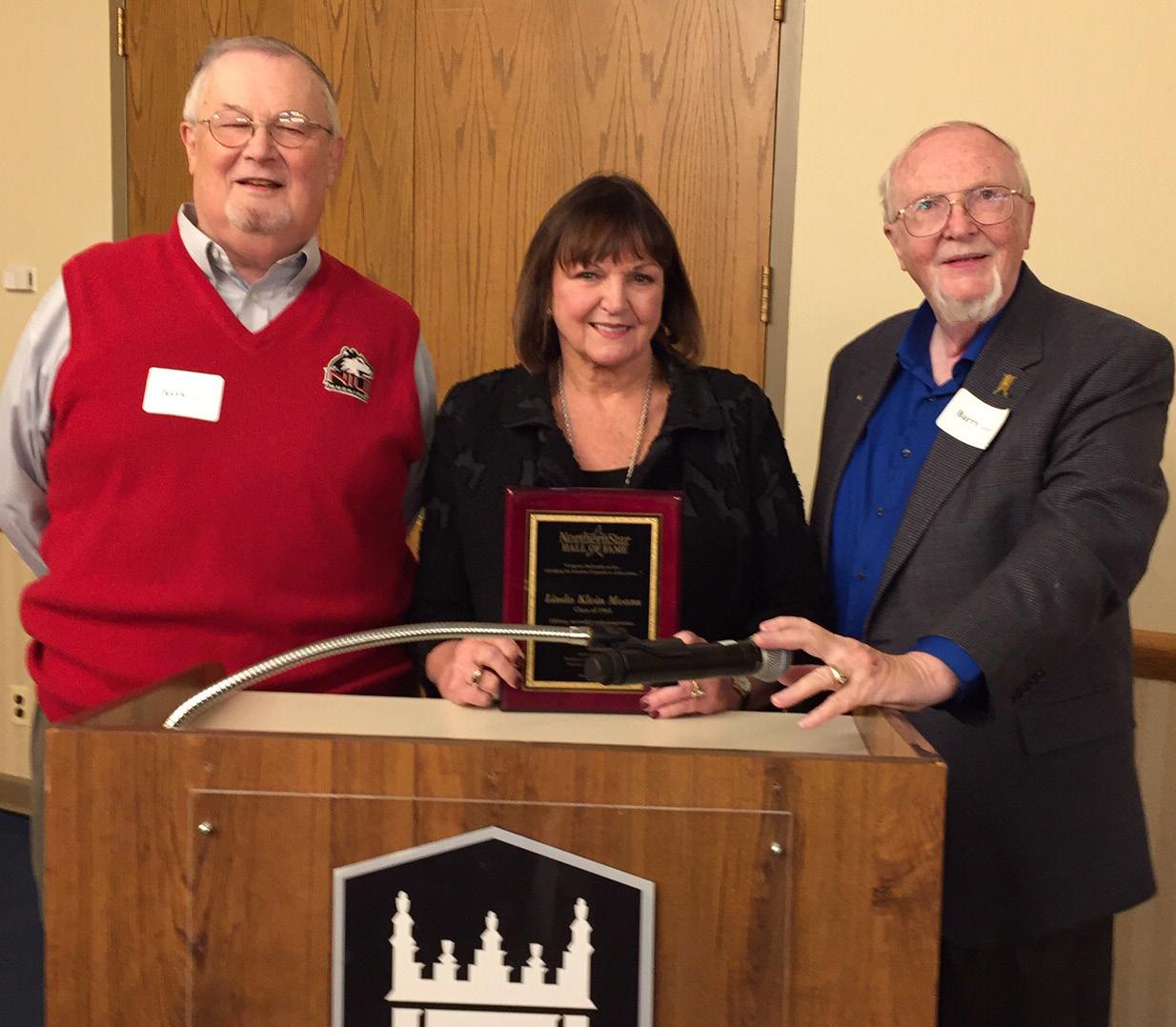
7 minute read
MASKS ON, LIGHTS ON
who was then the university president, threatened to expel Schrader if he didn’t stop editing the publication. Barry refused to stop, but was never kicked out of the university. “So he’s always been somewhat of a rabble rouser, a gadfly. I liked to jokingly call him a muckraker,” said Smith. “There were some people who got exasperated with Barry, because he wanted things to move relatively quickly. He wanted situations that he felt were unfair or unjust to be rectified.” Throughout his life, Schrader also advocated for those with mental illnesses. He cofounded the DeKalb County Citizens for Better Mental Health Care and received the McNish Advocacy Award from the National



Alliance on Mental Illness. In 2009, he fought (unsuccessfully) against Kishwaukee Hospital eliminating their inpatient Mental Health unit. Schrader wrote in his column titled “Remembering a life of activism,” published October 8, 2013: “That has been the story of my life, taking a strong stand on various issues, not always successfully, but at least I felt better for having made the effort.” Schrader wrote that he had a pin with the slogan, “I Chase Windmills,” because of his propensity to take up hopeless causes. As another example of this, while in California Schrader protested (unsuccessfully) against one of his former employers no longer observing Martin Luther King Jr. Day. But Schrader was not content to just protest in order to make the world a better place; he was also heavily involved in community service through Rotary and other organizations. Barry was active in the Livermore Rotary for 33 years, then later with the Sycamore Rotary Club after moving back to Illinois in 2006. Since the Schraders were living at the Oak Crest Retirement Center, Schrader organized a new satellite Rotary Club at Oak Crest. Of the 35 current members of the Oak Crest Area Rotary Club, Schrader personally recruited 25-30 of them. One of those whom he persuaded to join was John Peterson of Sycamore, who later served as President of the Oak Crest Rotary group. “I followed Barry’s lead,” said Peterson. “It was completely his initiative and his efforts that brought that about.” Projects that Schrader helped with, either by serving or fundraising, through the Oak Crest Rotary Club included Feed My Starving Children, DeKalb County Community Gardens, Hope Haven, Boy Scout Troop 33,

the Sycamore Pumpkin Fest parade, and the Soybean Adventure and Tractor Show at the Waterman Summer Fest. Another avenue Schrader used to try to improve his community was politics. He was elected to a community college district board in the San Francisco Bay Area by defeating a 20-year incumbent and then won re-election two more times, even serving as president of the board before retiring. In 2016, Schrader helped his old friend, Jerry Smith, get elected mayor of the City of DeKalb. “He was very, very tenacious,” said Smith. “He insisted that we walk this neighborhood and walk that neighborhood. He designed all my campaign material.”
BARRY SCHRADER’S LEGACY
Barry Schrader spent a good part of his life chronicling the history of DeKalb County and now he, himself, has become a significant part of that history. Besides leaving behind all of his “DeKalb County Life” columns, which are a virtual treasure trove of local history and nostalgia, Schrader helped to start or revive numerous organizations that continue on. Back in 2013, Ney Grange #1845, which was the only surviving Grange society in DeKalb County, was in danger of collapsing because it had lost so many members. DeKalb County at one time had nine granges. Barry took it upon himself to single-handedly recruit people to keep the Ney Grange in operation, and he became Grange Master (president). The Grange, a fraternal organization that encourages families to band together to promote the economic and political wellbeing of agricultural communities, dates back to the 1860s and was a precursor to the farm bureau. The Ney Grange is based in Genoa.


The Oak Crest Rotary Club, which Schrader started, named their Rotarian of the Year Award in Barry Schrader’s honor. They also planted a red maple tree on the Oak Crest property in honor of Schrader. During the tree planting ceremony, Pat Shafer, current President of the Sycamore Rotary Club said, “If a man is measured by his family, friends and contributions, then Barry Schrader is truly worthy...of our recognition of the many known and unknown contributions that Barry has made to make his and our world a better place.” Barry Schrader’s life will continue to leave other tangible marks on the area. His memorial fund is going to be used to place more historical markers around DeKalb County. It was something near and dear to his heart. For instance, Schrader wanted to replace the marker acknowledging the site of the first train station in DeKalb, that had been stolen around 2001. The DeKalb County Historical Society had decided not to create any more historical markers, which had irked Barry. But apparently that decision has now been reversed, at least temporarily, because of the memorial fund in his name. Schrader also helped found several other organizations that will continue to advance his passions, including the DeKalb County Historical-Genealogical Society, the Livermore Heritage Guild, the Tri-Valley Exchange Club, and the American Amateur Press Association. In addition, he was co-founder and first president of the Friends of Vineyards, a viticultural preservation group that sought to save land for agricultural use in the Livermore Valley. Perhaps the greatest legacy Schrader leaves behind is the impact he had on other


journalists and historians. After working for the Northern Star and graduating from NIU, Barry later served as president of the Northern Star Alumni Board and was inducted into the Northern Star Hall of Fame. Mike Korcek, legendary former NIU Sports Information Director, called Schrader “the epitome of community journalism” in the Northern Star article announcing his death. Korcek said that Schrader always supported and encouraged future journalists. One such beneficiary of Schrader’s continued support of the Northern Star was Jessi Haish LaRue, who wrote a tribute to Barry that was republished in the Daily Chronicle. LaRue said that Schrader was “an eccentric, unique character that frequented the office” and “a legend to us kids.” After working briefly for the Daily Chronicle, LaRue later wrote columns for Schrader’s local history blog. She said that Barry became her mentor and regularly sent her encouraging emails. Schrader also recommended his young protege join the DeKalb County Historical-Genealogical Society and she is now a member of that group’s board. After informing LaRue of his pancreatic cancer, Schrader summoned her to his office and sent her home with four boxes of books and a giant DeKalb County map to aid her in her future local history writing. “I swore that I’d always make him proud,” LaRue said. “Barry’s enthusiasm for life, and his unwavering pursuit of the story, will be my inspiration for years to come.” In 2014, Schrader wrote a column titled, “Funerals offer chance for reflection,” in which he lamented: “The saddest occasions for me

occur when a person has been away from his or her hometown for many years, may not have any close living relatives, and the clergy conducting the service never had an opportunity to meet the person and can only read the obituary from the pulpit as a remembrance. How can one’s life be summarized in 200 words?” For Barry Schrader, who returned to his DeKalb County roots at the end of his life, that was certainly not the case. Schrader lined up the eulogists for his memorial service— Marilyn Stromberg, Ron Klein, and Jerry Smith—six months in advance. These were the people he felt knew him best. In addition to the oral and written tributes that these folks and others gave to Barry Schrader upon his death, Jessi Haish LaRue, Steve Bigolin, and Jerry Smith continue to carry on his work in journalism, local history, and government— areas of public service that Schrader was most passionate about.




